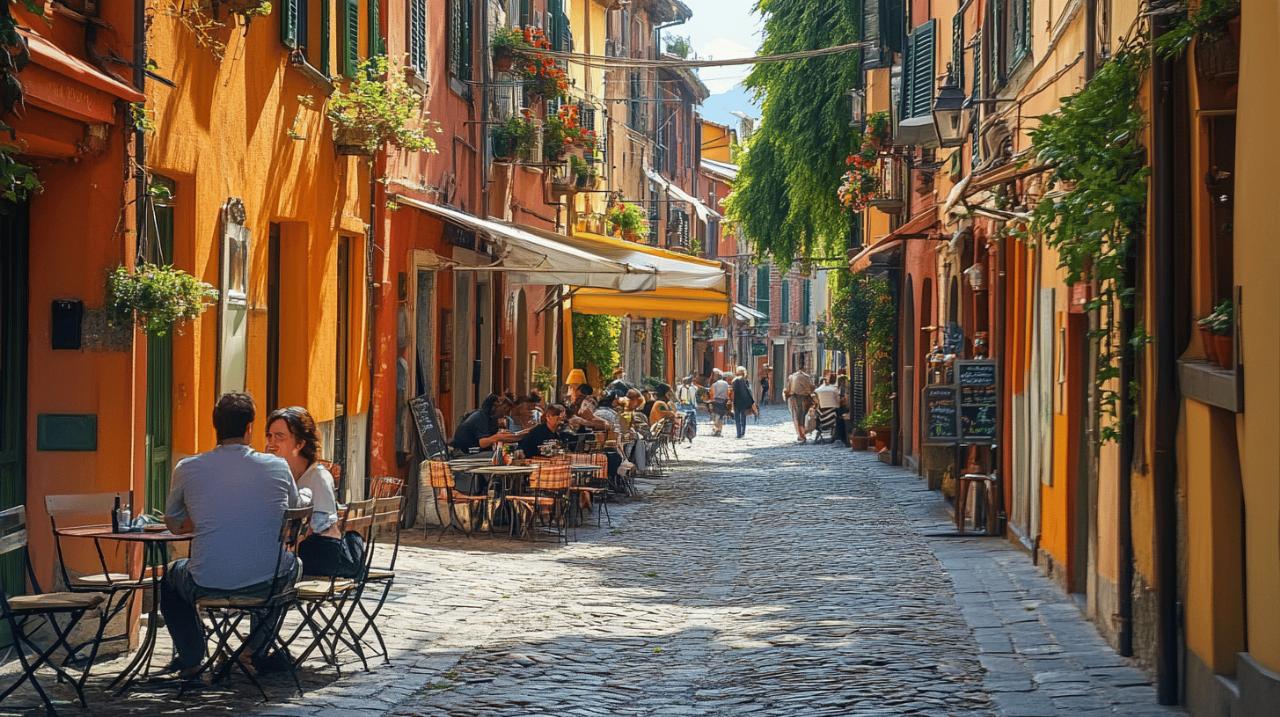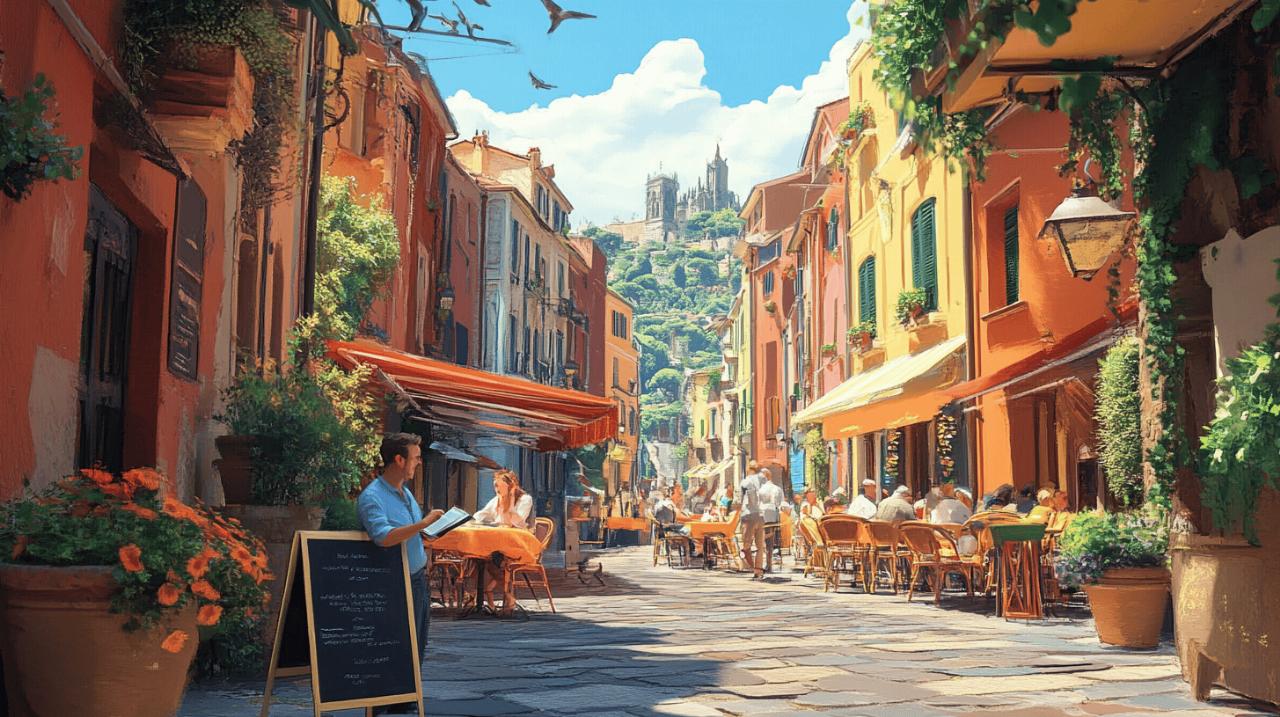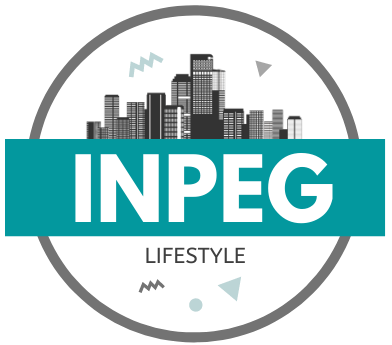From Paris to Rome: Living in Italy as a French national with tips and experiences for expats managing Italian Healthcare

Making the leap from France to Italy is a thrilling adventure that opens up a world of new experiences, flavours, and rhythms. Whether you're drawn by career opportunities, the allure of ancient history, or simply the dream of living la dolce vita, settling in Italy as a French national comes with its own unique set of considerations. From navigating the housing market to understanding the intricacies of the Italian healthcare system, this guide offers practical insights and tips to help you transition smoothly into your new life south of the Alps.
Settling in: finding your home and understanding costs across italy
Navigating the Housing Market in Major Cities and Charming Towns
One of the first challenges you will face as an expat is finding the right place to call home. Italy offers a diverse range of accommodation options, from bustling metropolitan areas like Rome and Milan to picturesque coastal towns along the Amalfi Coast and serene mountain villages in the north. Each region has its own character, climate, and lifestyle, so it is worth considering what matters most to you before committing to a location. Factors such as proximity to employment opportunities, quality of local schools, and even the weather can significantly influence your decision.
When it comes to renting, Italy provides several types of rental contracts. The most common is the freely negotiated contract, often referred to as a four plus four arrangement, which lasts for four years and is renewable for another four. There are also regulated contracts spanning three plus two years, as well as short-term agreements that can last up to eighteen months. For students, contracts typically range from three months to three years. Understanding these options will help you choose a tenancy that aligns with your plans and offers the flexibility or stability you need.
If you are considering buying property, Rome serves as an interesting case study. In 2024, the average price per square metre in the city hovers around three thousand euros, though in the historic centre, this figure can soar beyond five thousand euros per square metre. Additional costs include estate agent commissions of roughly three per cent, land registration tax at two per cent for a first home or nine per cent for a second property, and fixed fees for mortgage and stamp duty set at fifty euros each. Popular neighbourhoods among expats include Prati, Pinciano, Cavour, Trastevere, Esquilino, San Lorenzo, and Testaccio, each offering its own blend of culture, convenience, and community.
Budgeting for Life in Italy: What to Expect from Day-to-Day Expenses
Understanding the cost of living is essential for any expat planning a move abroad. In Rome, for instance, renting a room typically costs between four hundred and five hundred and fifty euros per month, while a studio or two-bedroom apartment ranges from seven hundred to eight hundred euros. Weekly grocery bills average around seventy euros, and a monthly public transport pass is priced at thirty-five euros. When you add up these expenses, a single person living in a rented room should budget for a minimum of nine hundred to one thousand euros per month, while those opting for a studio will need at least thirteen hundred euros.
Salary expectations also play a crucial role in your financial planning. The average annual salary in Rome is approximately twenty-eight thousand euros, translating to roughly fourteen euros per hour or a monthly income ranging from thirteen hundred to twenty-one hundred euros. To comfortably cover your living expenses and enjoy the occasional aperitivo or weekend trip, a monthly salary of at least seventeen hundred to eighteen hundred euros is advisable. Keep in mind that Italy applies a flat rate of VAT, and understanding local taxation will help you manage your finances more effectively.
Transport infrastructure in Italy is well developed, with options including trains, metros, trams, buses, and high-speed rail services that can reach speeds of up to one hundred and eighty-five miles per hour. Getting from Fiumicino Airport to the centre of Rome, for example, takes less than sixty minutes by train. Whether you rely on public transport or decide to embrace the Italian love affair with scooters, budgeting for these costs will ensure you can navigate your new city with ease.
Healthcare Essentials: Registering with the Servizio Sanitario Nazionale
Getting your tessera sanitaria: a step-by-step guide for french expats
Healthcare is a fundamental concern for anyone relocating abroad, and Italy's Servizio Sanitario Nazionale offers comprehensive coverage for residents. The system is funded by taxes and provides access to primary care, specialist consultations, emergency services, and prescription medications. For French nationals planning to stay in Italy for longer than three months, registering with the SSN is a crucial step. Before you become a resident, it is advisable to have private health insurance in place to cover any immediate medical needs.
The registration process involves several key steps. First, you will need to obtain an Italian tax code known as the codice fiscale, which serves as your unique identifier for all administrative purposes. Next, you must register your residence with the local registry office, known as the anagrafe. Once these formalities are complete, you can visit your local health authority, the ASL, to enrol in the SSN. During this visit, you will be asked to provide valid identification such as your passport, proof of residence, your tax code, and any relevant residence documentation.
After enrolling, you can choose a general practitioner from a list of doctors available in your area. This GP, or medico di base, will become your primary point of contact for routine medical care. You will then receive your Italian health card, the tessera sanitaria, which you should carry with you at all times. It is also important to understand that while the public healthcare system covers most treatments, there may be small co-payments for specialist visits, certain diagnostic tests, and prescription medications. Keeping copies of your health card, residence permit, tax code, and any insurance details is a sensible precaution.
Making the Most of Italian Medical Services and Understanding Your Rights
Once registered, you will have access to a wide range of medical services. The SSN operates at three levels: national, regional, and local. This structure ensures that healthcare is delivered efficiently and tailored to the needs of different communities. Emergency services are accessible by dialling one hundred and twelve, the European emergency number, or one hundred and eighteen for an ambulance. These services are available to everyone, regardless of residency status, ensuring that urgent medical needs are met promptly.
Pharmacies, easily identifiable by their green crosses, play an important role in the Italian healthcare landscape. They offer prescription medications, over-the-counter products, and basic health services such as blood pressure monitoring. Medications are classified into different categories: Class A drugs are covered by the SSN, Class C drugs must be paid for by the patient, and over-the-counter products are available without a prescription. Understanding these classifications will help you manage your pharmaceutical needs effectively.
While the public system is comprehensive, many expats opt for private health insurance to benefit from shorter waiting times, access to English-speaking doctors, and modern facilities. Monthly premiums for private cover typically range from fifty to two hundred euros, offering a balance between cost and convenience. Some policies reimburse you for expenses incurred, while others pay providers directly, so it is worth reviewing the details carefully. Whether you rely on the SSN or supplement it with private insurance, being informed about your rights and options will give you peace of mind as you navigate your new life in Italy.
Embracing the Dolce Vita: Cultural Integration and Italian Lifestyle
Understanding italian customs, identity, and daily rhythms
 Living in Italy is about more than just managing practicalities; it is about immersing yourself in a rich cultural tapestry that values tradition, family, and the art of living well. Italians are known for their warmth and expressiveness, and you will quickly notice the importance of personal connections and social rituals. From the morning espresso at the bar to the leisurely evening passeggiata, daily life in Italy follows rhythms that reflect a deep appreciation for community and pleasure.
Living in Italy is about more than just managing practicalities; it is about immersing yourself in a rich cultural tapestry that values tradition, family, and the art of living well. Italians are known for their warmth and expressiveness, and you will quickly notice the importance of personal connections and social rituals. From the morning espresso at the bar to the leisurely evening passeggiata, daily life in Italy follows rhythms that reflect a deep appreciation for community and pleasure.
Language is a key element of integration. While many Italians in major cities speak some English, learning Italian will greatly enhance your experience and make everyday tasks smoother. Consider enrolling in language classes before your move or soon after arrival. Even basic proficiency will help you navigate bureaucracy, build relationships with neighbours, and fully appreciate the nuances of Italian humour and hospitality. In Rome, for instance, the local dialect differs from standard Italian, adding another layer of linguistic charm to your new surroundings.
Food is central to Italian identity, and traditional cuisine is not just sustenance but a celebration of regional heritage. In Rome, dishes such as carbonara, amatriciana, and cacio e pepe are more than recipes; they are expressions of local pride. Sharing meals with family and friends is a cherished ritual, and you will find that Italians take their culinary traditions seriously. Embracing this aspect of Italian life will enrich your experience and help you forge deeper connections with your community.
Celebrating cultural heritage whilst maintaining your french roots
Italy boasts an incredible cultural heritage, with ancient ruins, Renaissance art, and baroque architecture at every turn. Cities like Rome offer a living museum where history and modernity coexist in a vibrant urban landscape. As a French expat, you will likely appreciate the shared Mediterranean values and the emphasis on art, beauty, and quality of life. However, it is also important to maintain your own cultural identity and find ways to celebrate your French roots while embracing your new environment.
Joining expat communities and French cultural associations can provide a sense of familiarity and support as you adjust to Italian life. These groups often organise social events, language exchanges, and cultural activities that allow you to connect with fellow French nationals and share experiences. At the same time, engaging with local Italian communities will broaden your horizons and deepen your understanding of the country you now call home.
Balancing integration with the preservation of your own heritage is a delicate but rewarding process. Whether it is through cooking traditional French dishes, celebrating French holidays, or simply speaking your native language with friends, these small acts help you stay connected to your origins while building a new life in Italy. The result is a richer, more nuanced expat experience that honours both where you come from and where you are going.
Leveraging EU Citizenship: Work, Residency, and Freedom of Movement
How european union rules smooth your transition to italian living
One of the greatest advantages of being a French national moving to Italy is the freedom of movement guaranteed by the European Union. As an EU citizen, you do not need a visa to enter Italy, and you can work, study, and reside in the country with minimal bureaucratic hurdles. This privilege simplifies many aspects of your relocation, from securing employment to accessing public services.
For stays shorter than three months, you can use your European Health Insurance Card, or EHIC, to access necessary medical care. If you plan to stay longer, registering your residence and enrolling in the SSN will ensure you have continuous healthcare coverage. The process is straightforward for EU citizens, requiring only valid identification, proof of address, and your Italian tax code. This ease of access to essential services is a significant benefit that makes Italy an attractive destination for French expats.
Employment opportunities are also more accessible thanks to EU regulations. You can work in Italy with just your passport and tax code, without the need for a work permit. This flexibility allows you to explore job opportunities across various sectors, from tourism and hospitality to finance and education. Understanding your rights as an EU citizen will empower you to take full advantage of the opportunities available and build a successful career in your new home.
Practical Advice for French Expats on Navigating Bureaucracy and Settling Successfully
While EU citizenship eases many processes, Italian bureaucracy can still be daunting for newcomers. It is advisable to approach administrative tasks with patience and preparation. Bringing an Italian-speaking friend or hiring a translator can be invaluable when dealing with complex paperwork or attending appointments. Keeping copies of all your documents, including your passport, residence permit, tax code, and health card, will save you time and stress.
Booking appointments early is another practical tip. Whether you are registering with the ASL, applying for a residence permit, or scheduling a meeting with your new GP, advance planning will help you avoid long queues and last-minute complications. Many public offices now offer online booking systems, which can streamline the process and reduce waiting times.
Finally, making use of available resources can ease your transition. The Italian Ministry of Health and the National Health Service Portal provide comprehensive information on healthcare services and registration procedures. Directories of English-speaking doctors, international health insurance providers, and expat forums offer additional support and guidance. By leveraging these tools and staying informed, you can navigate the challenges of relocation with confidence and enjoy all that Italy has to offer.
Embracing life in Italy as a French expat is a journey filled with discovery, adaptation, and growth. From finding the perfect home and managing your finances to accessing quality healthcare and integrating into a vibrant culture, each step brings you closer to truly living the Italian dream. With the right preparation and an open mind, your move from Paris to Rome, or any other Italian destination, can be a transformative experience that enriches your life in countless ways.
